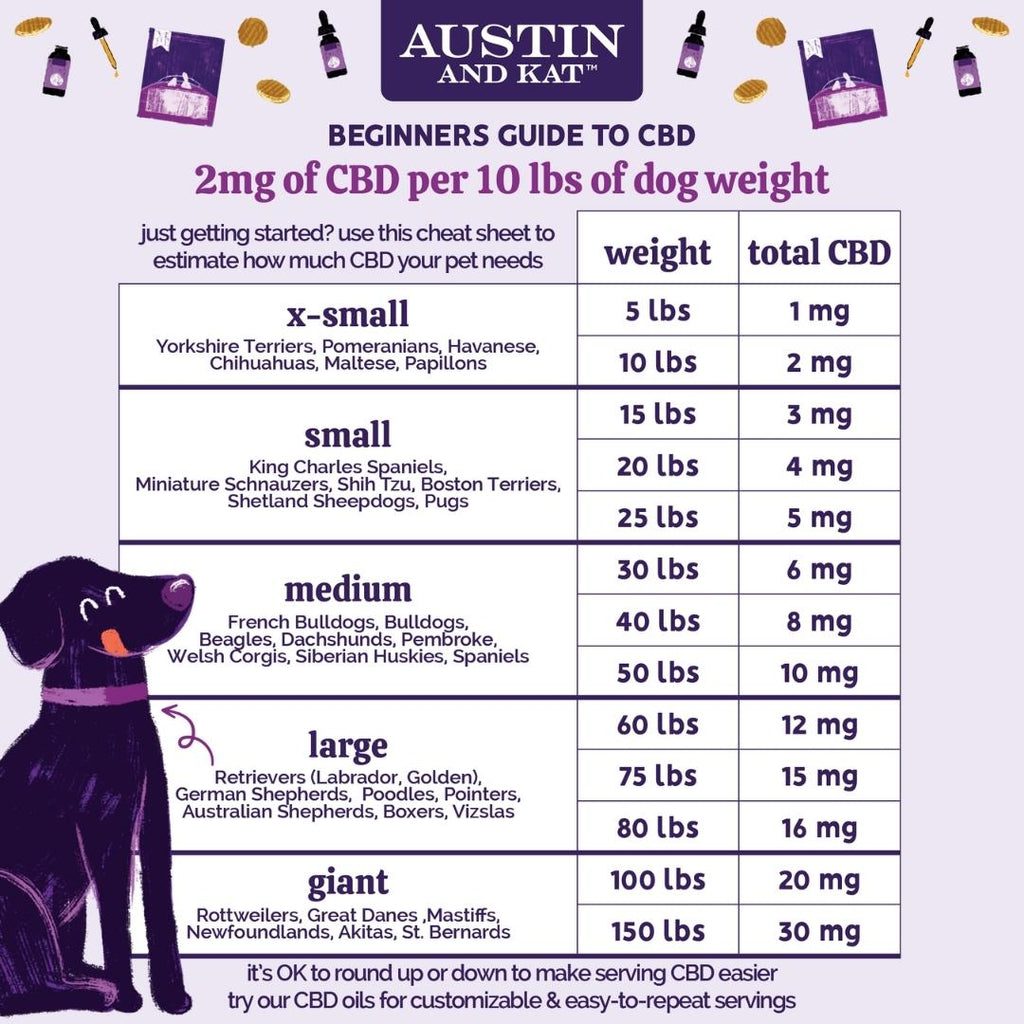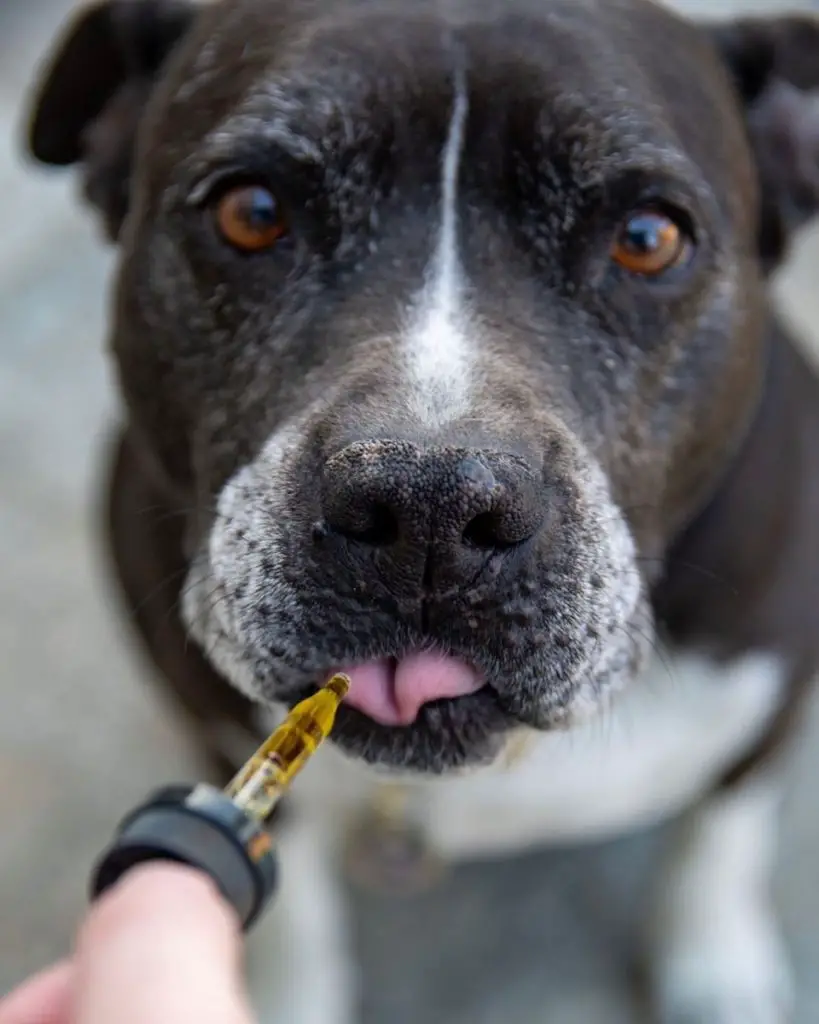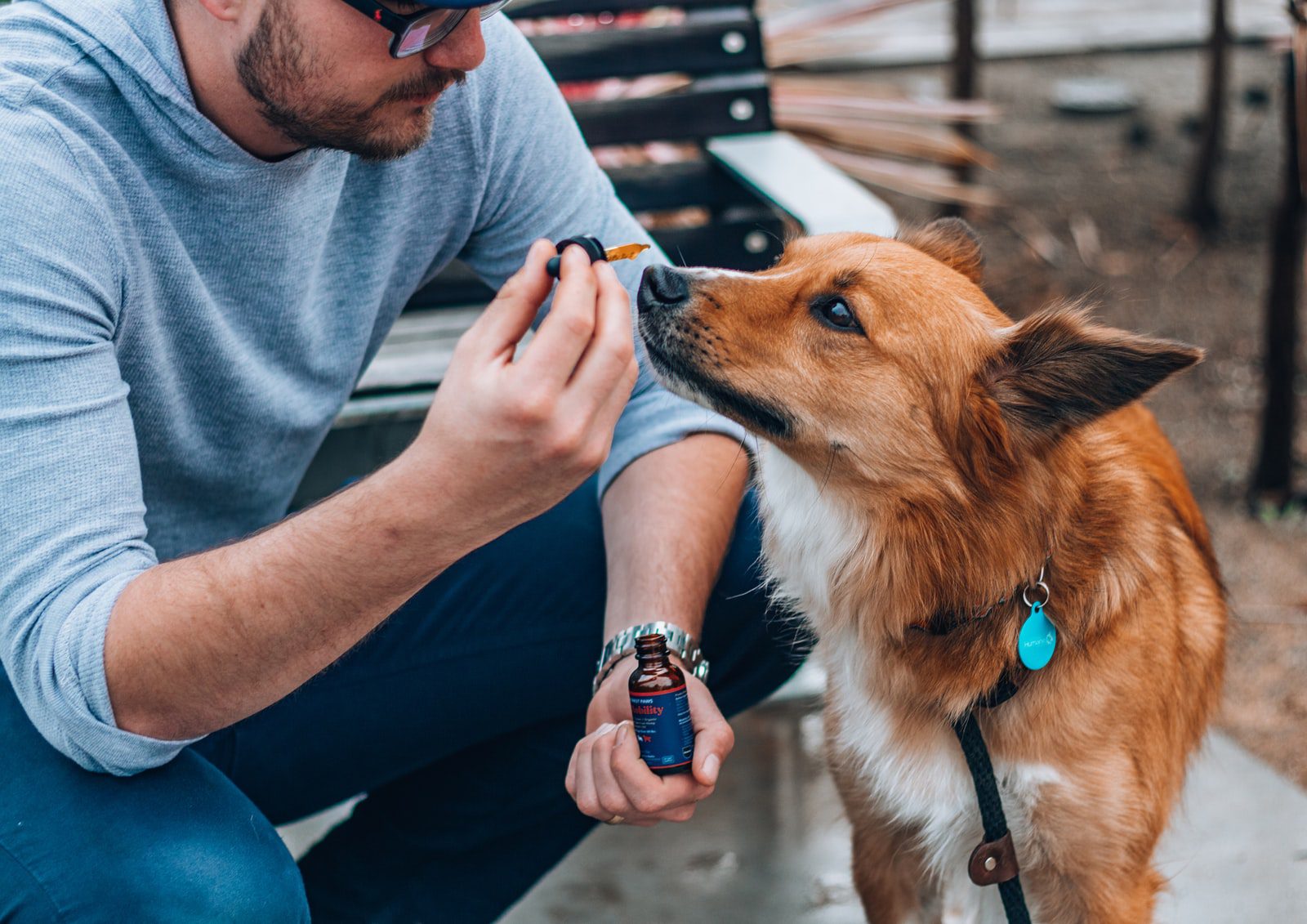CBD, in any form whatsoever, hardly needs any introduction to health as its pervasive health benefits in all aspects and all areas precedes its name.
Pets are also not left out of this life-changing rave that’s ongoing. Many pet owners have discovered that CBD oil has a ton of health benefits and uses when it comes to the health of their pets. But, because CBD is not that well regulated, there’s always the problem in regards to its proper dosage.

CBD Dosage For Dogs
Many pet owners, most especially dog owners, that have experienced first hand the goodness of CBD on their pets, are quick to advise their fellow dog owners to make use of CBD.
CBD has a lot of health benefits for dogs. These include anxiety repress, pain, and inflammation relief, stopping seizures, enhancing your dog’s appetite, and treating and delaying the growth of cancerous tumors. Thus, no wonder that many dog owners are going for it
The only issue that many dog owners have is knowing the exact dosage to give their furry friend that’ll be just enough to do the job without causing any extreme side effects.
Here are a few things to consider when it comes to knowing the right CBD dosage for dogs:
- The Size Of The Dog – It would be catastrophic if any dog parent decides to give a small dog the CBD dosage for a bigger dog. That’s definitely what those in the health field would call an overdose, and in the reversal, an insufficient dosage.
Before administering any form of CBD to your canine friend, make sure to consider its size since body mass goes a long way in determining the dosage.
- The Form of CBD To Be Administered – As mentioned, CBD comes in many forms and types. There are those in capsule form, in treat form, and oil form.
Each type has a differing quantity or Kg of CBD present, which means that the quantity to be ingested also differs. There are also differences in terms of how long the effects last and the quality of the product.
- The Type of Condition – The type and severity of each condition make the dosage of the treatment differ.
Less aggressive or less harmful conditions, like pains or loss of appetite, will require a lesser dosage for treatment. In contrast, more chronic conditions, like a cancerous tumor and bone issues, may require a stronger and higher dosage to treat.
- Product Type: Just as there are forms of CBD, there are also different product types from different manufacturers. As a result, each product has a different content. Many manufacturers provide a dosage chart on their labels to guide buyers and users.
- The Activity Level Of The Dog – The level of activity of the dog will determine the rate at which the dog’s metabolism will interact with the CBD. This also affects how long CBD will last in the dog’s system.
- Professional Advice – At any point when a dog owner wishes to introduce CBD, either as the primary medication or a supplement, a certified veterinarian must be involved.
The vet will do the appropriate full-on health check to determine if the dog is valid to have CBD added to the medication list and also to prescribe the right dosage along with the best follow up.
If dog owners consider the factors above, then calculating or knowing the right dosage becomes a lesser headache.
In general, the best approach to getting the right dosage of CBD for dogs is through the use of body weight with a considerable time factor of about 8-12 hours for each intake. It’s also advisable to make use of CBD oil as the droplets are more measurable than the treats or capsule.
Typical recommendations for dosage based on oil type is 2-4 drops administered for a time frame of 2-4 times daily. For capsule, 0.1 to 0.2 mg/kilogram of body weight is equivalent to 0.05 to 0.1 mg/pound or 0.05 to 0.20mg/pound on a timeframe of once to twice daily. In contrast, the treat form dosages are better administered based on professional and certified veterinarian advice.
Whatever the case may be, dog parents should begin small – giving their dogs small quantities while observing the changes and effects, and increasing the dosage if there’s any indication of insufficiency and also reduce if there’s an indication of overdose.
In case you wish to make the calculations yourself, there’s a way to do so. But, this only works for oil-based CBD products. The formula works and calculates the number of milligrams (mg) of CBD found in each milliliter (ml) of oil.
The calculation essentially states that for every 75mg formula, the CBD content is 2.5mg. Consequently, if it’s a 150mg formula, then the CBD content is going to be 5mg per ml of oil.

You can also use this as an alternative:
- From 5 pounds to 10 pounds = use approximately 0.25 – 1 mg per day.
- From 11 to 20 pounds = use approximately 0.5 – 2 mg per day.
- From 21 to 40 pounds = use approximately 1 – 4 mg per day.
- From 41 to 60 pounds = use approximately 2 – 6 mg per day.
- From 61 to 80 pounds = use approximately 3 – 8 mg per day.
- From 81 to 100 pounds = use approximately 4 – 10 mg per day.
- From 101 to 120 pounds = use approximately 5 – 12 mg per day.
- For dogs weighing more than 121 pounds = use a combination from the above based on the owner’s discretion.
To make the calculation more personal, consider the following steps:
- Convert the dog’s weight from pounds (lbs) to kilograms (kg).
- Multiply the number of milligrams in the dose by the number of kilograms of your dog.
- Use the concentration of the CBD product to calculate the volume of oil that should be administered. For this, it’s necessary to know how many milligrams of CBD are in a milliliter of oil.
Conclusion
CBD is beneficial to dogs since the new medication works wonders when your dog’s health is at stake. As for the dosage calculation, it’s advised for owners to follow the instructions found on the label of individual CBD products or calculate it themselves. Most importantly, seeking professional and certified help is the best way to determine the right dosage.








